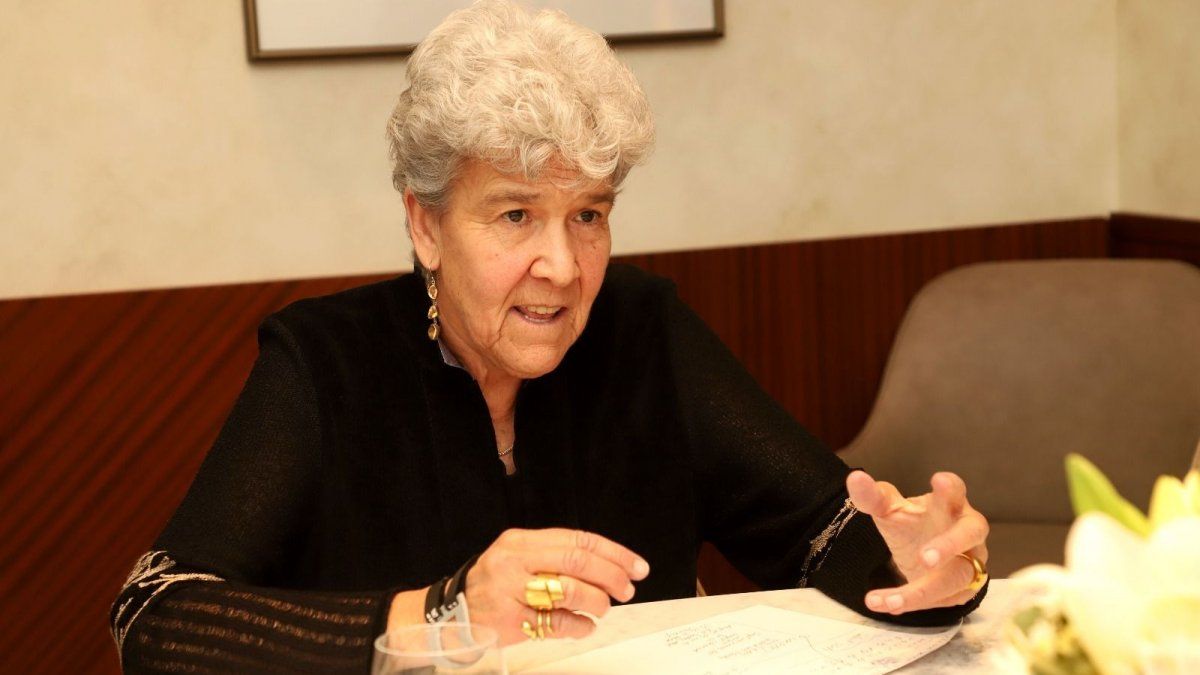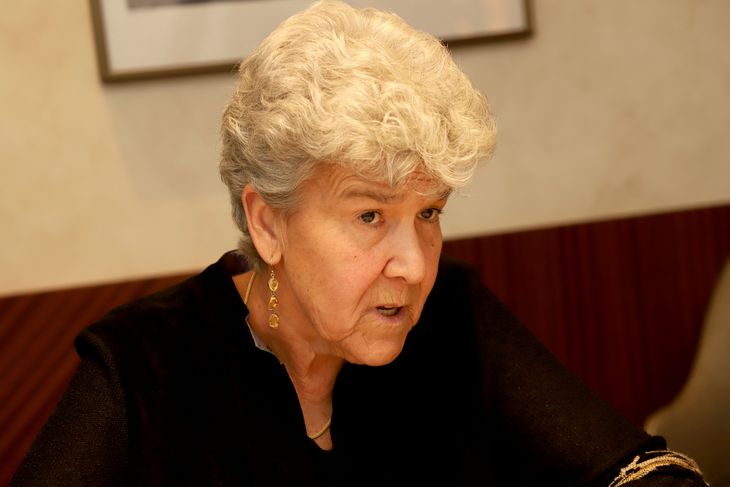An American official says the United States is optimistic in its trade with Argentina

Marisa LagoUndersecretary United States trade She, who just completed a two-day trip in Argentina, said she was “optimistic” about trade opportunities between Argentina and the United States. The official met with businessmen and government officials, including the Chancellor. Diana Mondino.
“I arrived with very high expectations because of everything I read, and I will leave more optimistic about the opportunities. There is a lot of room for growth“, said Lago in an exclusive interview with Domain And the Buenos Aires Herald. He added that he was focusing on sectors related to the energy transition, considering that this is a major area of interest for the Biden government.
During the interview, Lago spoke about the importance of Argentina's lithium reserves, the possibilities available to Argentine companies with the Inflation Reduction Act (IRA) – the main US legislation on climate change – as well as the possibility of cooperation with civil nuclear projects aimed at reducing carbon emissions. The interview has been edited for length and clarity.
Journalist: What do you gain from your meetings with businessmen and officials?
Marisa Lago: The meetings confirmed the importance of this trip. We knew that with the changes underway there were great opportunities to increase trade and investment between our two countries. Perhaps the best example of this is the abolition of the import registration system, which was in fact a barrier to trade and did not produce any significant benefits. Not only is this great news for US and global companies, but it is also a sign of a desire to be more open to bilateral trade and investment.
Question: What is the goal of the United States in trying to increase trade with Latin America?
Ml: During the pandemic, we have learned the importance of not relying too much on one country or even one region. That's why we're very interested in diversifying our supply chain. In our search for countries where diversification makes sense, the Americas stand out because they are our neighbors and have such strong historical and trade ties. Moreover, due to our geographical connection, we see more and more opportunities.
Q: What sectors did you focus on during your journey?
Ml: If I had to sum it up, I would say transition to clean energy and critical minerals. One of Argentina's strengths in this regard is that there are many clean energy sources available. It's not just about the wind. Not just solar. Not just aquatic, right? We know that there are countries around the world that have made commitments under the Paris Agreement. By fulfilling these commitments, we believe that American companies, with their cutting-edge technologies and solutions, can help other countries. This is the message I share in my meetings with Argentine and American energy companies.
Question: How does the United States envision cooperation with Argentina in the field of lithium mining?
Ml: There is great recognition of Argentina's potential in this area. The fact that it may be the third largest exporter of lithium with less than a third of its reserves exploited shows the growth potential. The International Energy Agency has predicted that demand for lithium will increase 26-fold by 2050. This is a sign of global demand that represents an opportunity for Argentina. And I think it also represents an opportunity for the United States because we are, again, an innovative economy. We have companies that provide services and products that can help Argentina benefit from this.
Question: Argentine companies cannot obtain IRA financing for clean energy projects because Argentina does not have a free trade agreement with the United States. Is this something that can be discussed?
Ml: There are several ways to deal with this. The first when talking about the inflation reduction law: There is $369 billion allocated to the transition to clean energy. This is a good thing for America and the world. We are sending a strong demand signal through government investments. With regard to this particular type of agreement, this is a matter for the Office of the United States Trade Representative.
IRA investments will include technologies we can't even imagine today. Technologies that people in our universities don't even think about. The innovation for which the United States is famous will not be limited to its territory. These will be new solutions, new technologies, and new approaches that the United States will seek to export to its allies around the world. So I see that Argentina is able to participate again.
Question: President Milley said he doesn't believe in climate change. Is the United States concerned about a lack of agreement on such a crucial issue?
Ml: I will leave my opinions on climate change to scientists and heads of state. We know that some countries focus on climate change as a moral imperative. Others see it as a matter of fulfilling the shifts in the Paris Agreement. We at the Ministry of Commerce see it as an opportunity for economic growth and employment. There are many jobs that can be created based on the energy transition, regardless of each person's politics.
Question: Argentina is building a project called CAREM, which is the world's first small modular reactor (SMR). These reactors will be in demand as useful tools for energy transition. Does the United States see any scope for cooperation in this type of nuclear project?
Ml: I'm so glad you asked this question. In 2023, I had the honor of leading the Department of Commerce delegation to the United Nations Climate Change Conference (COP28) in Dubai, the largest delegation ever to attend a climate summit. Although expectations were high, I don't think many people expected the level of commitment that many countries made at that summit to triple their use of nuclear energy. [22 países, entre ellos Estados Unidos, Canadá, el Reino Unido y Francia, se comprometieron a triplicar su capacidad de energía nuclear para 2050 desde los niveles de 2020]. This represents a very important opportunity, because the United States has companies in the SME space, and there is a lot of interest towards our country because it has a very strong regulatory system. We see that there are opportunities to partner and work with countries looking to incorporate small civilian nuclear weapons into their production.

“Award-winning zombie scholar. Music practitioner. Food expert. Troublemaker.”










